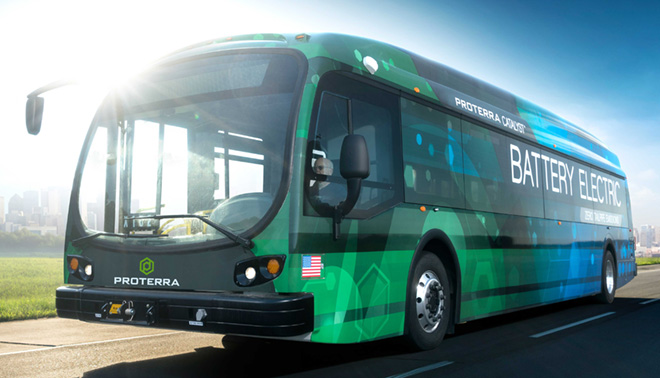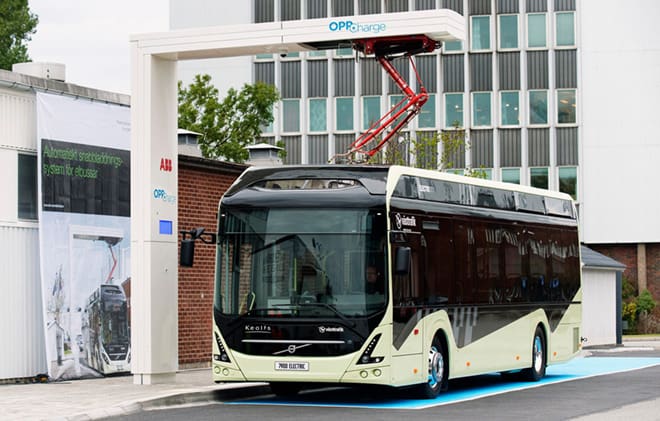City buses are an ideal application for EVs. The savings on fuel and maintenance are undeniable. In China, cities are ordering them by the thousand. So why are US cities still piddling around with pilots of a few buses?
“The time for pilot programs should be in the rear-view mirror,” writes Gina Coplon-Newfield, Director of the Sierra Club’s Electric Vehicles Initiative, in a recent article. “These buses have been tested over the last several years, and dirty diesel and natural gas buses are part of the reason urban air quality is so bad and climate emissions are so high.”
In California, the transition to electricity is well under way. The Antelope Valley Transit Authority has announced a goal of a 100% electric bus fleet by 2018. Foothill Transit has committed to fully electrify its fleet of 361 buses by 2030. Los Angeles Mayor Eric Garcetti recently asked his city’s transit agency, L.A. Metro (which operates over 2,200 buses) to do the same. Other cities planning serious purchases include Seattle (120 new electric buses), Philadelphia (25 buses), Denver (36) and Miami (33-75 buses). Charged’s home town of St Petersburg, Florida is dipping its toe in the water with a pilot of 2 BYD e-buses.


With all this going on, the recent announcement by the New York City transit agency, MTA, of a three-year pilot program to test 10 electric buses sounds pretty meek. “For the largest transit agency in the US, with more than 5,800 buses, 10 buses is barely a drop in the bucket, and three years is way too long for a pilot, especially given that MTA has run previous electric bus pilot programs,” writes Gina Coplon-Newfield. “Even MTA’s own sponsored analysis by Columbia University recommended a one-year pilot and a much bigger electric bus commitment.”
Representatives of 100 small businesses sent a letter to New York Governor Andrew Cuomo and other leaders of the MTA, urging the agency to buy 200 zero-emission buses and hundreds of electric cars (for repair vehicles, etc.) by 2019, and to commit to making all bus purchases zero-emission by 2030.
In Massachusetts, environmental, labor, and health groups sent a similar letter to the state Secretary of Transportation last year.
“The time is now ripe to go all in on zero-emission buses – with commitments that move us toward 100% electric,” writes Coplon-Newfield. “If San Bernardino County, Seattle and Eugene, Oregon can do it, then so can New York, Boston, Miami, Chicago, Los Angeles, and every small and large transit agency in between.”
Source: Sierra Club



















































